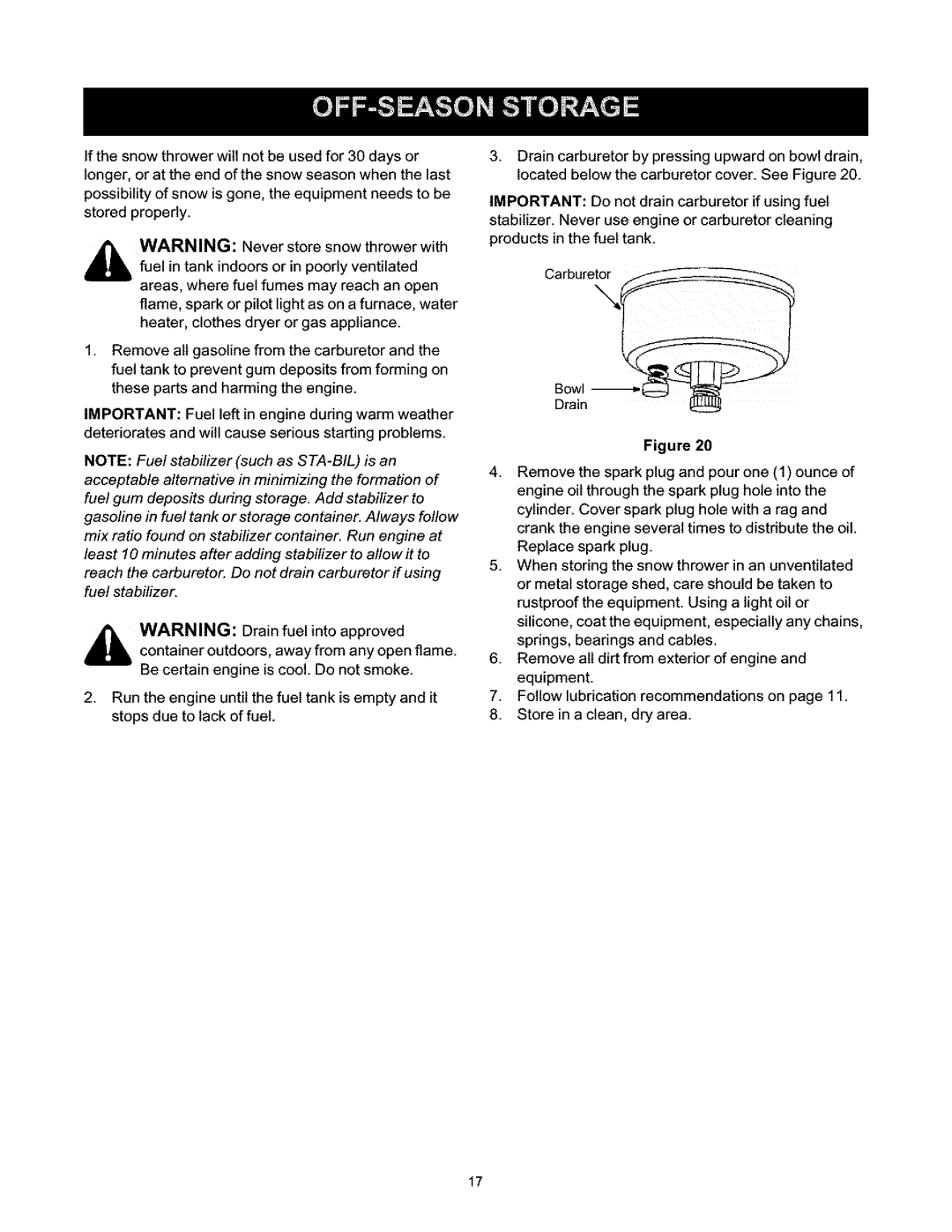
Ifthesnowthrowerwiltnotbeusedfor30daysor
longer,orattheendofthesnowseasonwhenthelast possibilityofsnowisgone,theequipmentneedsto be storedproperly.
_b WARNING: Never store snow thrower with
fuel in tank indoors or in poorly ventilated areas, where fuel fumes may reach an open
flame, spark or pilot light as on a furnace, water heater, clothes dryer or gas appliance.
1.Remove all gasoline from the carburetor and the fuel tank to prevent gum deposits from forming on these parts and harming the engine.
IMPORTANT: Fuel left in engine during warm weather deteriorates and will cause serious starting problems.
NOTE: Fuel stabilizer (such as
_ | WARNING: Drain fuel into approved |
| container outdoors, away from any open flame. |
| Be certain engine is cool. Do not smoke. |
2.Run the engine until the fuel tank is empty and it stops due to lack of fuel
3.Drain carburetor by pressing upward on bowl drain, located below the carburetor cover. See Figure 20.
IMPORTANT: Do not drain carburetor if using fuel stabilizer. Never use engine or carburetor cleaning products in the fuel tank.
Carburetor
Bowl
Drain
Figure 20
4.Remove the spark plug and pour one (1) ounce of engine oil through the spark plug hole into the cylinder. Cover spark plug hole with a rag and crank the engine several times to distribute the oil. Replace spark plug.
5.When storing the snow thrower in an unventilated or metal storage shed, care should be taken to rustproof the equipment. Using a light oil or silicone, coat the equipment, especially any chains, springs, bearings and cables.
6.Remove all dirt from exterior of engine and equipment.
7.Follow lubrication recommendations on page 11.
8.Store in a clean, dry area.
17
